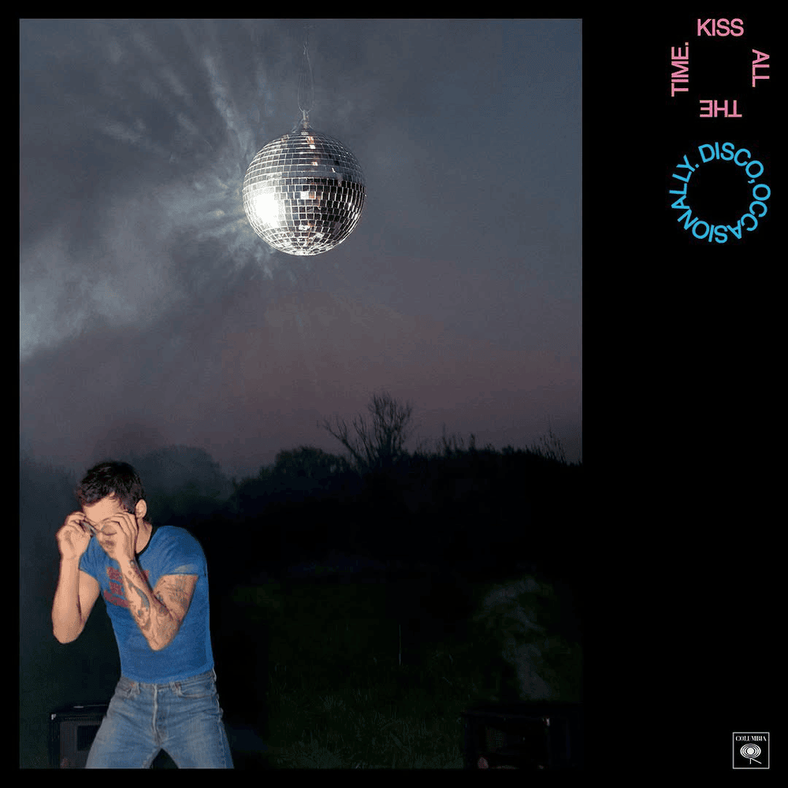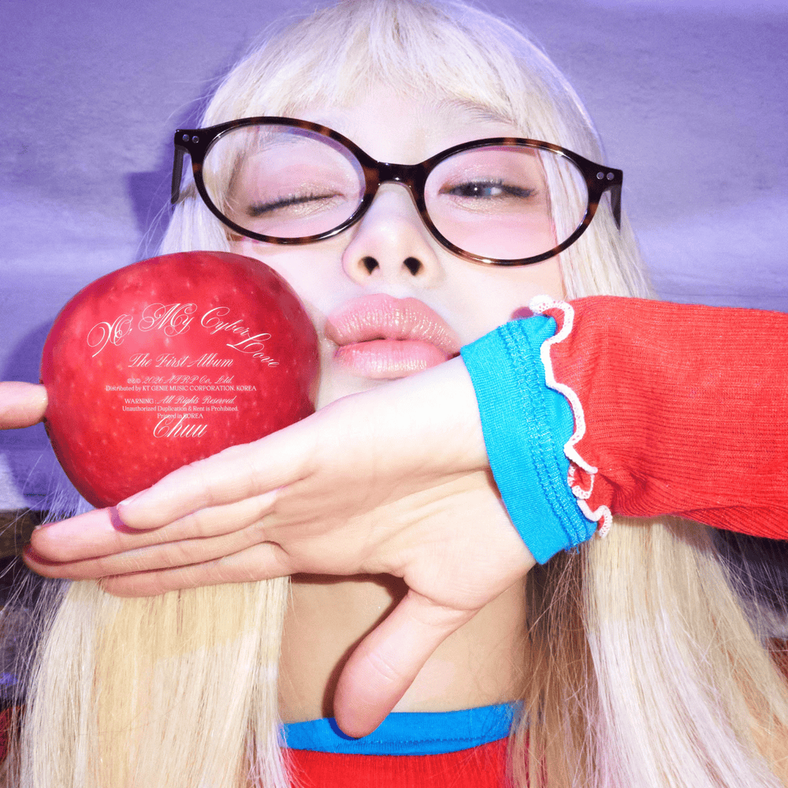Rating: 9/10
Claire Cottrill, also known as Clairo, is widely recognized in the music world for her discography beginning in bedroom pop, a genre where music is largely lo-fi and widely produced in the bedrooms of small and newly introduced artists.
Since her second album “Sling,” Cottrill has shown to move away from her roots in lo-fi and instead delve into more mature instrumentals. And as heard in “Charm,” Cottrill continues to experiment with her eye for music and lyricists. “Charm” differs from “Sling” as inspiration from R&B seeps through onto the tracks, creating a delicate and intimate listen.
Cottrill worked hand-in-hand with producer Leon Michels, most recognized from his presence as a member of the soul and funk band Sharon Jones & The Dap-Kings. A review from Pitchfork says that Cottrill and Michels brought back the 70s palette that “Sling” carried and added more of the mellotron, piano, clarinet and organ that Cottrill played.
Get The Daily Illini in your inbox!
Prior to the release of “Charm,” the album’s first two tracks, “Nomad” and “Sexy for Someone,” were independently released. “Sexy For Someone” was Cottrill’s official return since the release of “Sling” in 2021 and is the second track on the album. In this track, Cottrill sings about deeply longing for a lover to find her sexy, not cute, nor pretty. Her lyrics are fairly simple, yet the layered instrumentals and vocal harmony make the track feel complete.
“Sexy to somebody, it would help me out/ Oh, I need a reason to get out of the house/ And it’s just a little thing I can’t live without,” Cottrill sings.
The theme of this track is strikingly similar to Cottrill’s single, “Pretty Girl,” a song about yearning to be seen as perfect by a lover. These two sister songs come together to depict Cottrill’s maturity as she continues to expand her discography and life experiences as heard in her lyrics.
Cottrill’s musical essence fills “Charm” with much warmth. Her voice comes off as soft at times and is often overtaken by instrumentals, yet this doesn’t drown her vocals out, rather, it makes her voice sound like a delicate whisper.
“Charm” is all about Cottrill’s introspection and yearning as a young woman. Listeners learn more about her viewpoints on intimate subjects, such as romance and loneliness. Lyrically, Cottrill’s authenticity shines through in “Charm.” However, sonically, influence from past musicians can be heard throughout the album.
“‘Faint echoes of Blossom Dearie’ can be heard on ‘Terrapin,’ as well as Carole King’s percussive piano on ‘Thank You,’ deeming the album a relic of the 70s recovered for the modern age,” The Line of Best Fit notes.
Similarly, the album cover of “Charm” looks strikingly close to “Al Green Explores Your Mind” by Al Green. From the portrait photos in front of the forest green background to the spot where both album titles sit, it is visible that Cottrill pulled heavily from pieces in the 70s.
The opening song on the album “Nomad,” is a song that Cottrill had been teasing to her fans for ages. In this track, Cottrill reflects on her feelings of solitude as she struggles to make secure connections with others. She sings about not wanting to risk the possibility of losing everything and therefore chooses loneliness above all else. Cottrill calls herself pessimistic and a mess for feeling so isolated and being okay with that fact.
“But I’d rather be alone than a stranger/ You’d come visit me late at night/ I’d rather wake up alone than be reminded/ Of how it was a dream this time,” Cottrill sings.
The third track of the album, “Second Nature,” welcomes listeners with Cottrill’s humming as she introduces the concept of loving someone so deeply that it becomes second nature. She questions why this happens and compares these emotions to the works of nature, like the sap of cedar rolling to be closer.
“And once you get in my ear/ I see kismet sinking in/ It’s second nature/ Like the sap from a cedar/ Rolling down to be near her/ It’s second nature,” Cottrill sings.
This track emulates how it feels to find sensualities with someone in such an intimate manner, evoking emotions one might not expect to experience.
“Thank You,” the fifth track, has an introspective approach where Cottrill sings about her complex relationships and admits vulnerability for letting her pride get to her head at times. Cottrill admits that even though she held some faults, the romance and shared connection that she experienced would not go to waste. It was because of that other person that she expanded on her self-discovery, thus thanking them for their time.
“I really hate to admit it/ I put my pride on the line/ ‘Cause when I met you, I knew it/ I’d thank you for your time.”
“Juna” takes a jazzy and bright background. This track continues to expand on the album’s theme of romance as Cottrill emphasizes how her anonymous partner, or crush, has invited new emotions that have overwhelmed her.
“(You make me wanna) Go dancing/ (You make me wanna) Try on feminine/ (You make me wanna) Go buy a new dress/ (You make me wanna) Slip off a new dress,” Cottrill sings.
Lyrics are filled with wanting to embody femininity and having strange urges to purchase new dresses, all for the attention of a new lover. This track is faintly similar to “Sexy To Someone,” as the lyrics in “Juna” express that Cottrill may just be finally feeling seen and rightfully loved.
“Pier 4” reminds listeners of what Cottrill does best, creating strikingly melancholic songs that hit listeners when they least anticipate it. The song is a reminder that the connections we create will always leave a mark on every party involved. This can be understood by the very first line, which introduces the idea of loneliness and how one might accept such a dreadful feeling.
“And if you need to disappear/ You’ll have no reason to be sad at all,” Cottrill sings.
Cottrill admits how we might lead ourselves with excuses, a coping mechanism to push away the state of vulnerability.
Yet, in the song’s second verse, Cottrill circles back to remembering how she felt while existing in these impactful relationships. She hits a realization that by walking away and building tough boundaries she has lost the softness that she once embodied long ago.
This track sounds very similar to Cottrill’s tracks on “Sling,” such as “Wade,” a song about Cottrill making a move away from her past and beginning to discover the true meaning of solitude when growing up. This seeps into this new album — a theme that Cottrill shows to be a vulnerable emotion that never goes away — even with age.
At times the tracks may seem to blend in together and sound monotonous. This may be due to Cottrill’s voice holding the same notes throughout the album without much vocal variation to be heard. Nevertheless, “Charm” is filled with what makes Cottrill so alluring to her fans. This album may seem to be a different approach than her previous discography but it plays as a sign that Clairo is growing up, along with all of her fans that have been supporting her since her beginning as an artist.






